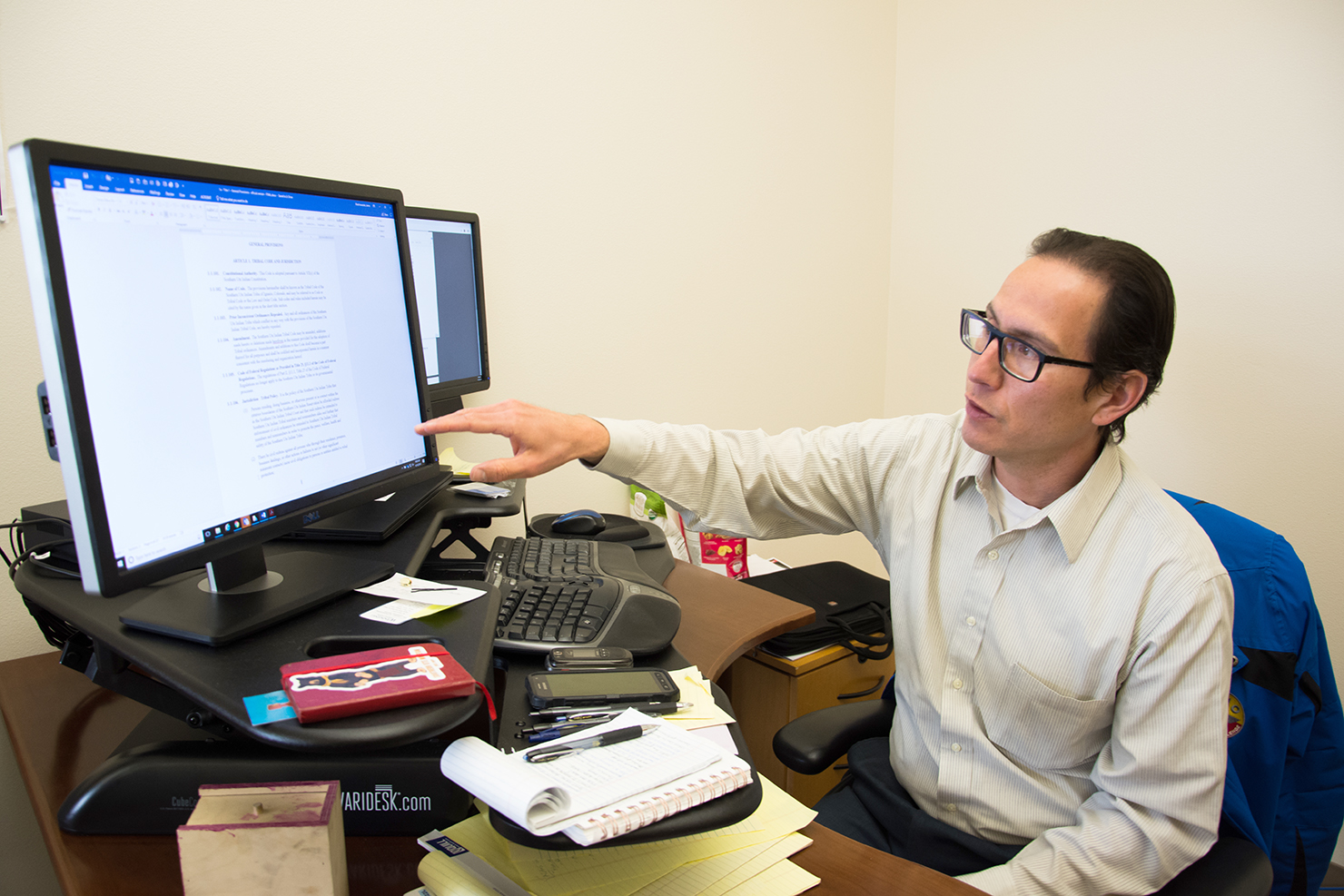The Southern Ute Indian Tribe’s Legal Department is tasked with publishing annual revisions to the Tribal Code, following an annual review process laid out by the Southern Ute Tribal Council. The annual review process is designated as a legislative session. The intent of this systemic approach, which began in 2017, is to prioritize, and revise codes annually in an effort to keep the Tribal Code up to date.
“Tribal Council has designated certain codes that it wants to work on,” explained Tribal Attorney James Washinawatok. Resolution 2017-203 specifies the process, it also designated the 2018 priorities. “There are lots of codes that need revision given the volume of the Code,” Washinawatok said. “The reason for the session is to prioritize.”
This legislative session is an evolution of the existing process for revision of the Tribal Code, it sets up a timeline and a realistic workload for annual revisions to the Code. Tribal Council looked at the codes that had been worked on and were ready to be finalized, Washinawatok explained.
Resolution 2017-203 identified certain codes under revision at that time: Land Code, Tribal Environmental Review policy, Tribal Employment Rights Ordinance, Traffic Code, Gaming Code, Business, Agricultural, Residential Leasing Code, and Criminal Code — pending BIA approval.
More recently, Resolution 2019-009 designated the following codes as priorities: Protective Custody Code, Criminal Procedure Code, Election Code, and Liquor Code; plus, three more if those are completed: Building Code, Domestic Relations Code, and Probate Code.
Most of the codes require the Bureau of Indian Affairs (BIA) approval following Tribal Council’s review. Additionally, Resolution 2019-49 appoints at least one Southern Ute tribal member for each committee. Each committee is specialized to address code revision, based on expertise and involvement.
The process is guided by an annual timeline, with each step in the process serving as a guidepost.
Dec: Tribal Council identifies up to three codes to prioritize.
Jan.-May: Committees relating to those codes meet (Tribal staff plus a minimum of one Southern Ute tribal member) to create draft of revisions.
June-July: Legislative session with Tribal Council to meet specifically to review the drafts. The Tribe’s Legal Department submits those codes for comment — either to the tribal membership only, or to the public. Typically, a 30-day comment period.
Aug: Committee would review the comments and decide how to incorporate them.
Oct: Committees meet with Tribal Council to review and discuss revisions.
Nov: Tribal Council would then review and approve prior to the Southern Ute Tribe’s General Elections.
“This is an ongoing, continuous process,” Washinawatok emphasized.
The Tribe’s Legal Department will identify changes, including minor grammatical revisions, while also making updates to the formatting to help clean up the readability of the document in the near future. The Code itself will be on the Southern Ute Indian Tribe’s website with visible revisions, pending final approval.
“By no means is this a one-person effort, the code revision process involves the entire Legal Department, and the Tribe, the committees, and discussions — it is a team effort,” Washinawatok emphasized.

